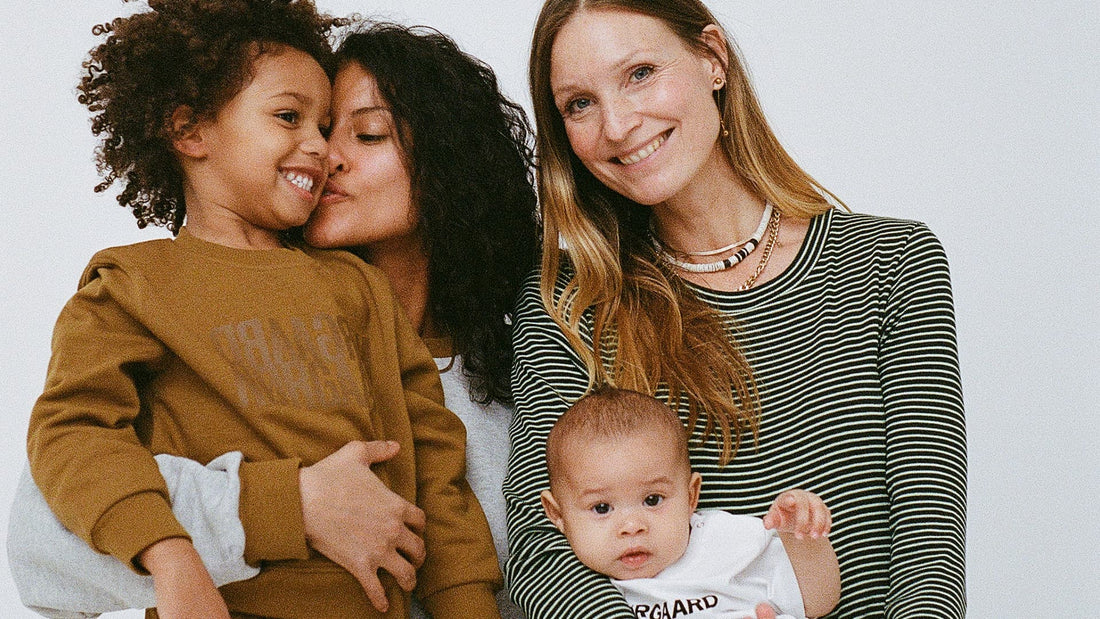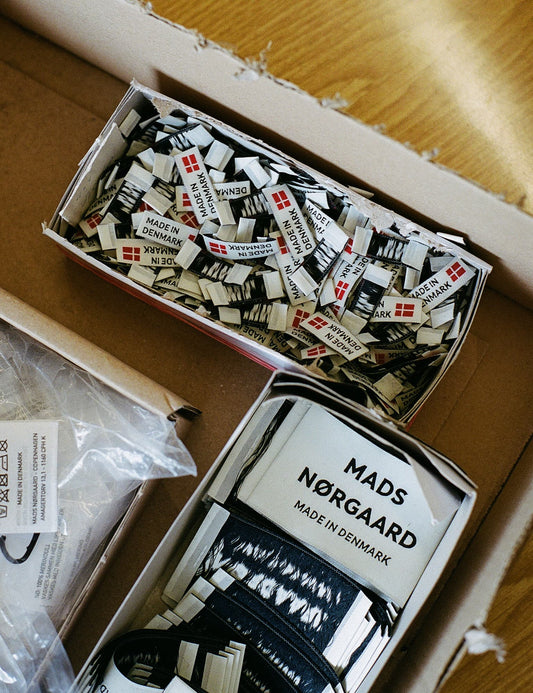Mads Nørgaard Better Fibers
Organic Cotton.
No genetically-modified crops, chemical fertilizers, or pesticides. This lowers the risk of soil and groundwater contamination and reduces CO2 emissions in farming, which benefits livelihoods and biodiversity in the surrounding cotton farms.
Recycled Cotton.
Saves water and energy while reducing CO2 emissions and textile waste.
Recycled Wool.
A mechanical process recycles wool without adding new colours or chemicals.
Recycled Polyester and Polyamide.
Saves water and energy compared to conventional materials and reduces CO2 emissions and textile waste.
Lenzing™ Ecovero™ Viscose.
Derived from certified renewable wood sources, using an eco-responsible production process following high environmental standards.
Lenzing™ Tencel Modal™ / Lyocell.
Fibers are extracted from naturally grown beechwood via an environmentally responsible integrated pulp-to-fiber process. Composed of natural material, all TENCEL™ standard modal fibers are biodegradable and compostable under industrial, home, soil and marine conditions, so they can fully revert to nature.
We choose these fibers based on the generally known advantages related to their environmental footprint, as we do not yet have the full exact data accessible. We are working on getting more relevant data connected directly to our products.
Better Cotton Initiative (BCI)
We use certified Better Cotton Initiative (BCI) yarn for our iconic #101 t-shirts. BCI is the world's leading sustainability initiative for cotton. The certification helps farmers to gain knowledge of sustainable cotton farming practices, improve working conditions in the cotton farming industry, and support equality for everyone involved in the farming process.
Read more about the Better Cotton Initiative at bettercotton.org

Calling for more legislation
We acknowledge that the average consumer may struggle to understand the complexity of the garment manufacturing process. We encourage national governments and supranational organisations, such as the EU, to implement stronger legislation on labeling to enhance transparency in our business.
On that note, we are proud to support the work of Copenhagen Fashion Week (CPHFW) and their goal to create a more sustainable fashion week – and fashion industry.




